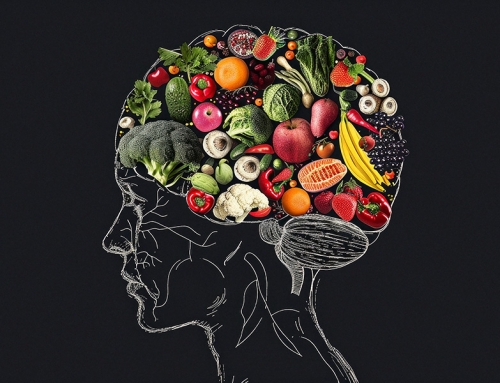Introduction
The human gut microbiota, comprising trillions of microorganisms, including bacteria, viruses, fungi, and other microbes, forms a highly diverse and intricate community that resides within the digestive tract. This dynamic ecosystem has garnered considerable attention in recent years due to its pivotal role in maintaining overall health and well-being, extending its influence far beyond digestion. From its involvement in nutrient metabolism and immune system development to its impact on mental health and chronic disease prevention, the gut microbiota has emerged as a key player in shaping human physiology and influencing various aspects of our well-being. As researchers uncover the complex interactions between the gut microbiota and host, a growing body of evidence underscores the significance of maintaining a healthy and balanced gut microbial composition for optimal health outcomes. [1]. Concurrently, the field of nutrition informatics has emerged, employing technology and data analysis to investigate the intricate relationship between nutrition and health outcomes [2]. This article aims to explore the synergy between gut health and nutrition informatics, elucidating how this integration can advance our understanding of human health and pave the way for personalized nutrition interventions.
The Impact of Gut Health on Health Outcomes
The gut microbiota plays a pivotal role in numerous physiological processes, including digestion, metabolism, immune function, and mental health [3]. Disruptions in the delicate balance and composition of the gut microbial community have been linked to a range of health conditions, including but not limited to obesity, diabetes, inflammatory bowel diseases (IBD), and cardiovascular diseases. These associations emphasize the significance of alterations in the gut microbial composition in the development and progression of these diverse health disorders. Understanding the impact of perturbations in the gut microbiota on these conditions holds substantial implications for improving preventive strategies, diagnostic approaches, and therapeutic interventions to restore a healthy gut microbial profile and mitigate the risk of associated diseases. [4].
Nutrition Informatics: Advancing Data-driven Nutrition Research
Nutrition informatics utilizes advanced technology and data analysis methodologies to gather, analyze, and interpret information pertaining to nutrition. By leveraging the capabilities of technology and data science, nutrition informatics facilitates the collection, organization, and analysis of vast amounts of data related to various aspects of nutrition, including dietary intake, nutrient composition, dietary patterns, and health outcomes. This interdisciplinary field combines the principles of nutrition science, computer science, and information technology to enable the development of innovative tools, databases, and algorithms that enhance our understanding of the complex relationship between nutrition and health. Through applying nutrition informatics, researchers, healthcare professionals, and policymakers can gain valuable insights into dietary patterns, nutritional deficiencies, disease risk factors, and the effectiveness of interventions, ultimately leading to more targeted and evidence-based approaches to promoting optimal nutrition and improving public health outcomes. [2]. Through the utilization of electronic health records (EHRs), wearable technology, and mobile applications, a wealth of dietary information can be accessed by researchers and healthcare practitioners, enabling them to extract valuable insights regarding the influence of nutrition on various health outcomes. The integration of these technological advancements allows for the collection of comprehensive data regarding individuals’ dietary habits, nutrient intake, and lifestyle choices, all of which play a vital role in determining overall health and well-being. [5]. This interdisciplinary field facilitates evidence-based decision-making and enables the development of personalized nutrition interventions.
Integration of Gut Health and Nutrition Informatics
By employing nutrition informatics, a comprehensive framework is established for gathering and examining dietary information in tandem with the composition of the gut microbiota. This platform enables researchers to explore the impacts of individual nutrients, dietary patterns, and interventions on gut health. Through the integration of advanced data collection and analysis techniques, nutrition informatics empowers investigations into the intricate interrelationships between dietary factors and the complex ecosystem of gut microbiota. This facilitates a deeper understanding of how specific nutrients and dietary patterns influence the composition and functionality of the gut microbiota, shedding light on the potential mechanisms through which nutrition impacts gut health. The utilization of nutrition informatics provides a powerful tool for researchers to unravel the intricate dynamics between diet, gut microbiota, and their collective influence on human health, ultimately guiding the development of targeted dietary interventions to enhance gut health and overall well-being.[6]. The integration of nutrition informatics and gut health data enables the development of predictive models linking dietary choices, gut health markers, and individual health outcomes [7].
Conclusion
The convergence of nutrition informatics and the study of gut health marks a momentous advancement in our comprehension of the intricate interplay among nutrition, gut microbiota, and human well-being. Through the application of technological advancements and data-centric methodologies, scientists and healthcare experts are poised to unravel the multifaceted associations linking dietary patterns, gut microbial composition, and various health outcomes. This synergistic integration holds immense promise in revolutionizing personalized nutrition interventions, as it paves the way for the creation of tailored strategies aimed at optimizing health and safeguarding against disease. By harnessing the power of technology and data-driven approaches, researchers and healthcare professionals can embark on a transformative journey, delving deeper into the complex dynamics of the gut-nutrition-health nexus, thereby unlocking new insights and opportunities for enhancing individualized healthcare and promoting long-lasting wellness.
References
- Qin, J., MetaHIT Consortium, Li, R., Raes, J., Arumugam, M., Burgdorf, K. S., Manichanh, C., Nielsen, T., Pons, N., Levenez, F., Yamada, T., Mende, D. R., Li, J., Xu, J., Li, S., Li, D., Cao, J., Wang, B., Liang, H., … Wang, J. (2010). A human gut microbial gene catalogue established by metagenomic sequencing. Nature, 464(7285), 59–65. //doi.org/10.1038/nature08821
- Wolf, K. J., & Lorenz, R. G. (n.d.). Gut Microbiota and Obesity. PubMed Central (PMC). //doi.org/10.1007/s13679-011-0001-8
- Martin, A. M., Sun, E. W., Rogers, G. B., & Keating, D. J. (2019, March 27). The Influence of the Gut Microbiome on Host Metabolism Through the Regulation of Gut Hormone Release. Frontiers. //doi.org/10.3389/fphys.2019.00428
- Breton, J., Galmiche, M., & Déchelotte, P. (2022, February 16). Dysbiotic Gut Bacteria in Obesity: An Overview of the Metabolic Mechanisms and Therapeutic Perspectives of Next-Generation Probiotics. PubMed Central (PMC). //doi.org/10.3390/microorganisms10020452
- Topol, E. J., Steinhubl, S. R., & Torkamani, A. (n.d.). Digital Medical Tools and Sensors. PubMed Central (PMC). //doi.org/10.1001/jama.2014.17125
- Hughes, R. L., Frankenfeld, C. L., Gohl, D. M., Huttenhower, C., Jackson, S. A., Vandeputte, D., Vogtmann, E., Comstock, S. S., & Kable, M. E. (2023, May 24). Methods in Nutrition & Gut Microbiome Research: An American Society for Nutrition Satellite Session [13 October 2022]. MDPI. //doi.org/10.3390/nu15112451
- Kussmann, M., Rezzi, S., & Daniel, H. (n.d.). Profiling techniques in nutrition and health research. (PDF) Profiling Techniques in Nutrition and Health Research | Martin Kussmann – Academia.edu. //www.academia.edu/7689449/Profiling_techniques_in_nutrition_and_health_research






Leave A Comment